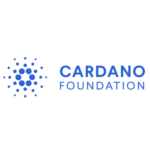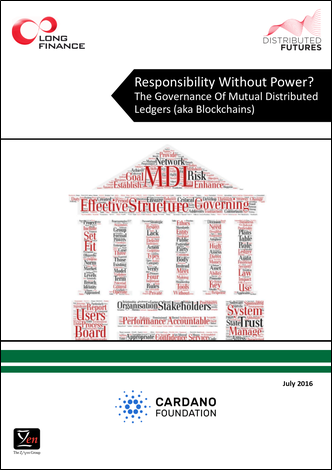Authors
Simon Mills and Bob McDowall
Sponsored by
- Cardano Foundation
Published by
Z/Yen Group, Long Finance, & Cardano Foundation (July 2017), 48 pages.
Share on social media:



You might also be interested in:
Responsibility Without Power? The Governance Of Mutual Distributed Ledgers (aka Blockchains)
Mutual Distributed Ledger (MDL, aka blockchain) technology is in an emergent phase. New applications are under development; new uses are being researched; new consortia are being formed to explore MDL applications. Considering appropriate governance structures has had a lower priority so far, but trust in the increasingly popular systems will depend on their incorporating good governance principles. It was the aim of this study to identify those principles, in order to provide a roadmap for developers and users alike.
An analysis of the material collected through desktop research, as well as several discussions with practitioners and stakeholders including a conference and webinar on the subject, has revealed that effective governance in MDL systems relies on people rather than software and rests on three pillars:
- Architecture: The role of the governance structure, its composition, remit, powers, responsibilities, and its relationship with users, is a critical component.
- Accountability: Effective governance of MDLs enhances trust. Trust is enhanced when a governance structure is accountable to its stakeholders, transparent in its decision-making, and subject to periodic audit and third party review.
- Action: The governance structure must develop strategic and risk management plans, which are delivered through effective performance management frameworks. Trust can be further enhanced through the use of the voluntary standards market to independently verify performance metrics and the systems established to compile them.




